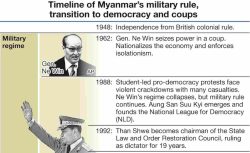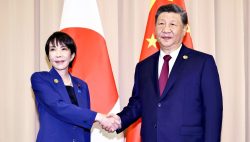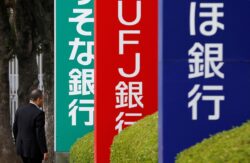14:00 JST, December 20, 2020
The Arab Spring movement that defeated oppression faded in a short period of time — only the revival of authoritarian regimes and civil wars have become conspicuous. Why is it so difficult to establish democracy in Arab countries?
Ten years have passed since the self-immolation of a young man in Tunisia triggered pro-democracy movements in the Middle East dubbed the Arab Spring.
Anti-government demonstrations that began in Tunisia spread to Egypt and other countries the following year, leading to the collapse of long-standing autocratic governments. In Libya, the regime of Moammar Gaddafi collapsed after armed clashes with dissidents. But spring did not last long.
In Egypt, an Islamist regime that aimed for governance based on the doctrines of Islam arose after democratic elections, but a de facto coup revived the military-led authoritarian regime. Libya is still in a state of civil war.
Tunisia, which achieved a certain degree of democratization through the establishment of its Constitution and elections, is just an exception. In the political and social climate of the Middle East, there is a tendency for the people to be divided by race, tribe and religion. This shows how difficult it is to rule a nation without relying on military or authoritarian power.
The political structure in which Islamists tend to get into conflicts with secularists, the military and the monarchy will also hinder democratization.
Another reason is that the United States, which has been making efforts to promote democratization in the Middle East, has lost much of its influence. Then U.S. President Barack Obama praised the Arab Spring at first, but changed his stance to a passive one after witnessing the turmoil in the region.
Despite the use of chemical weapons by the government of Syrian President Bashar Assad in the civil war-torn country, Obama did not intervene militarily. Taking advantage of this situation, Russia attacked Syrian rebels under the pretext of sweeping out extremists, playing a decisive role in prolonging the Assad regime.
In the Yemeni civil war, the regional powers of Saudi Arabia and Iran have supported different local forces, turning the situation into a proxy war.
The Middle East has become a place where the countries concerned have clashed to expand their influence over the vacuum left by the United States after it stopped playing a central role regarding regional order. Unless the international community — centering around the United States and Europe — cooperates to intervene, it will be difficult to stabilize the situation.
Threats posed by the Islamic State extremist group based in Syria and Iraq that spread the fear of terrorism across many areas are still fresh in the memory. To prevent terrorism, it is essential to change the structure in which people dissatisfied with their current situation are drawn to extremism.
In Europe, a massive influx of refugees from the Middle East has led to an increase in right-wing forces advocating xenophobic policies. Problems spreading from the Middle East to the rest of the world can no longer be allowed.
— The original Japanese article appeared in The Yomiuri Shimbun on Dec. 20, 2020.
Top Articles in Editorial & Columns
-

Myanmar Will Continue Under Military Rule Even After Election, Ex-Ambassador Maruyama Says in Exclusive Interview
-

40 Million Foreign Visitors to Japan: Urgent Measures Should Be Implemented to Tackle Overtourism
-

Expansion of New NISA: Devise Ways to Build up Household Assets
-

China Criticizes Sanae Takaichi, but China Itself Is to Blame for Worsening Relations with Japan
-

Withdrawal from International Organizations: U.S. Makes High-handed Move that Undermines Multilateral Cooperation
JN ACCESS RANKING
-

Univ. in Japan, Tokyo-Based Startup to Develop Satellite for Disaster Prevention Measures, Bears
-

JAL, ANA Cancel Flights During 3-day Holiday Weekend due to Blizzard
-

China Confirmed to Be Operating Drilling Vessel Near Japan-China Median Line
-

China Eyes Rare Earth Foothold in Malaysia to Maintain Dominance, Counter Japan, U.S.
-

M6.2 Earthquake Hits Japan’s Tottori, Shimane Prefectures; No Tsunami Threat (Update 4)


















